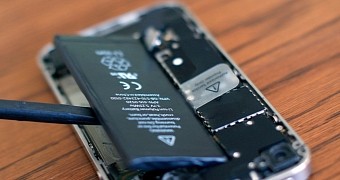A team led by the original creator of the lithium-ion battery developed a new and safer battery that can deliver three times as much power and charge in a matter of minutes. The battery is noncombustible and could be incorporated in upcoming smartphones and other devices.
A team from the University of Texas, led by John Goodenough, developed an “all-solid-state” lithium-ion battery cell that has a long life cycle and faster charge rates.
"Cost, safety, energy density, rates of charge and discharge and cycle life are critical for battery-driven cars to be more widely adopted. We believe our discovery solves many of the problems that are inherent in today's batteries," said Goodenough.
Noncombustible and eco-friendly new battery
The new battery uses glass electrolyte instead of a liquid solution that’s found in regular lithium-ion batteries. The new cell is noncombustible, which means that it won’t suddenly overheat and catch fire, like some devices currently do.
The glass is made from lithium, sodium or potassium and increases the energy density of the battery to 1200 cycles on a cell, with little impact on life. The batteries still work well down to -20 degrees Celsius. The development process is also simplified with the new technology and the batteries are made from earth-friendly materials.
The University of Texas Office of Technology Commercialization has already started negotiating license agreements with multiple companies in the battery industry. The new batteries are suitable for a number of devices and they could potentially be used in upcoming iPhones.
The whole smartphone industry could benefit from the new battery cell technology, as it would mean that phones could charge significantly faster and there wouldn’t be a safety risk for consumers. Smartphone batteries would no longer overheat and there would be fewer chances of a smartphone recall like the Galaxy Note 7 ever happening again. However, the new technology might not see wide adoption in the coming years, considering that it’s still under development.

 14 DAY TRIAL //
14 DAY TRIAL //